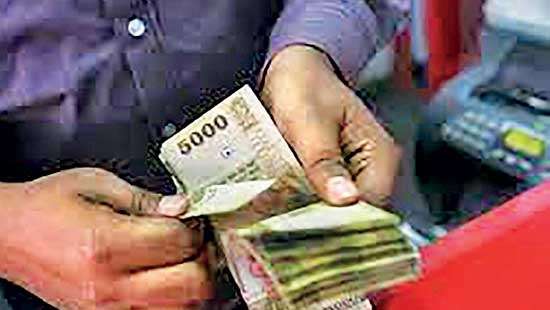Reply To:
Name - Reply Comment

 The banks extended their net credit growth to the private sector for the fifth consecutive month in October, albeit at a slower pace compared to the previous month, the data released by the Central Bank showed.
The banks extended their net credit growth to the private sector for the fifth consecutive month in October, albeit at a slower pace compared to the previous month, the data released by the Central Bank showed.
Sri Lanka needs this to evolve into a sustained period of credit expansion, which is crucial for bolstering the durability of the economic recovery initiated in the third quarter.
In the third quarter, Sri Lanka effectively emerged from a nearly two-year-long recession, posting a modest 1.6 percent growth compared to the same period last year.
This accomplishment is attributed, among other factors, to the availability of relatively less expensive credit, starting from the second half of the year, as per the Census and Statistics Department.
According to the latest Central Bank data, the licensed commercial banks extended Rs.37.9 billion in net credit to private businesses and individuals during October, compared to Rs.70 billion in September.
The interest rates, which experienced exponential increases for the majority of last year, displayed some softening in the first half of this year.
This occurred as the economy began to cool off, following a period of intense inflation, in response to the combination of tight monetary, fiscal and exchange policies working their way through the economy.
But the rates started easing more meaningfully from the second half of the year, amid the aggressive cut in the key policy rates and also successful conclusion of the domestic debt optimisation programme, which had cast a shadow over the banking sector.
The Central Bank also adopted a more stringent stance towards the banks that were slow to respond to monetary easing by issuing guidance on the extent to which the interest rates should be reduced and lowering the caps on specific lending products, including gold-backed loans, credit cards and pre-arranged overdrafts.
While remaining cautiously optimistic, given the still fragile economic recovery, the banks have begun to reopen their lending spigots at a more measured pace, after nearly two years of subdued growth.
The banks recently were seen ratcheting up their capital raising activities by way of debt issuances, to bolster their capital to ramp up growth.
The licensed commercial banks expanded their cumulative outstanding credit by Rs.75 billion, Rs.13 billion and Rs.6 billion, respectively in June, July and August, before getting a bump up in September.
Even with the last five months’ growth in private sector credit, the year-on-year growth still remains a negative 4.3 percent.
This is attributed to the intensity of the contraction in private sector credit, which began last year. As of end-October 2023, the outstanding private sector credit remains below the levels observed a year ago.
For instance, the total outstanding private sector credit by end-October 2023 stood at Rs.7,206.0 billion, compared to Rs.7,530.1 billion a year earlier.
After cutting rates by 100 basis points in November, taking the cumulative cut in policy rates to 650 basis points this year, the Monetary Policy Board said it expected an acceleration in the pace of private sector credit with further moderation in the lending rates.
“With the moderation of market lending interest rates, credit to the private sector is expected to increase further in the period ahead, thereby supporting the envisaged rebound of domestic economic activity,” the Monetary Policy Board said.